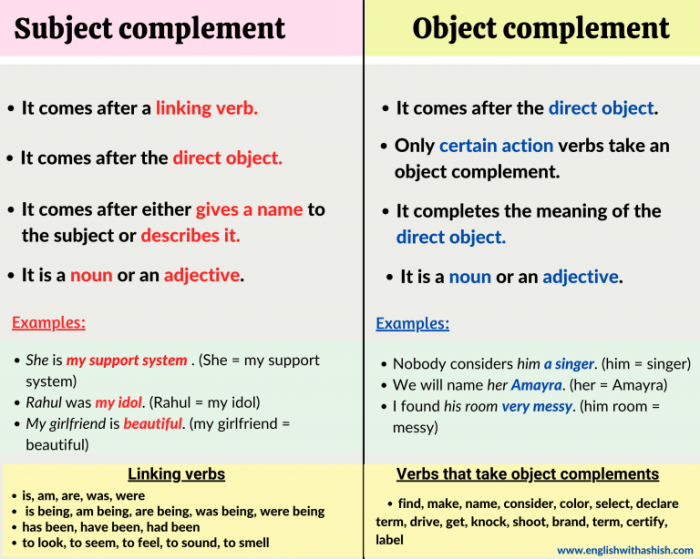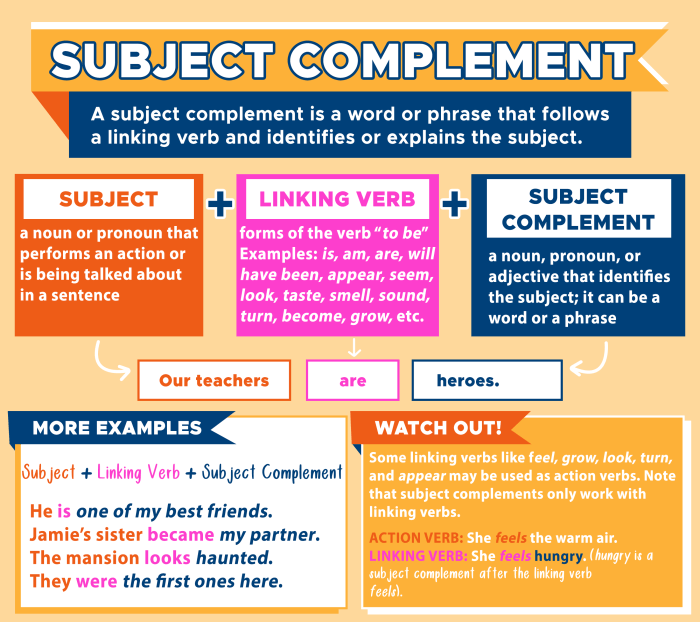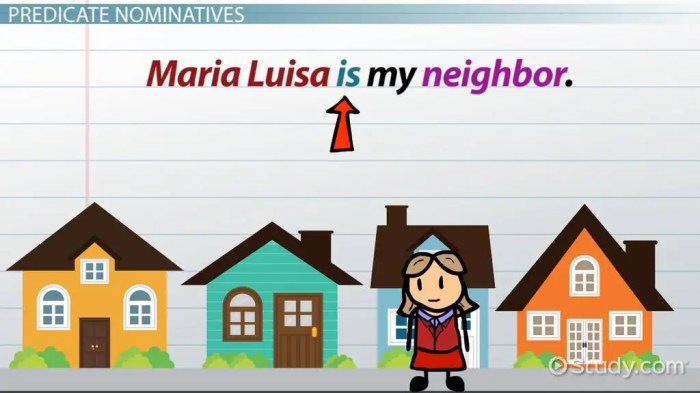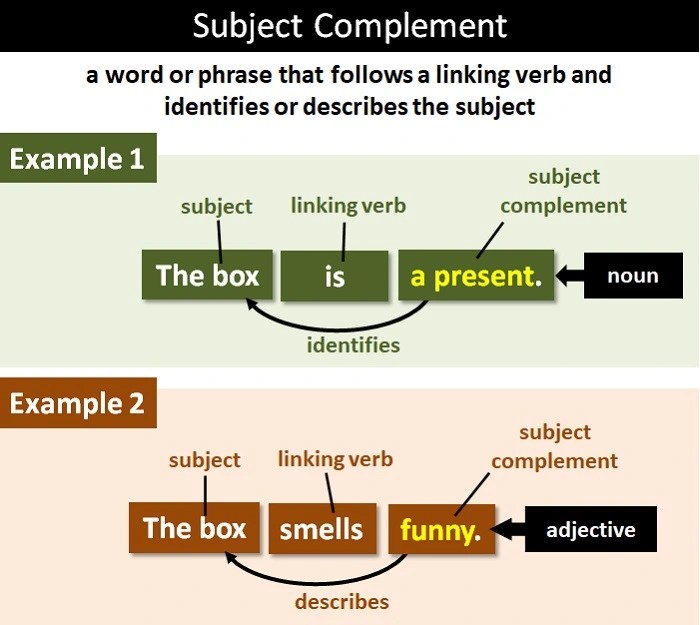Introducing the subject and subject complement worksheet, a comprehensive guide to mastering this essential aspect of grammar. This worksheet will equip you with the knowledge and practice you need to identify, use, and avoid common errors related to subject and subject complements, elevating your writing to new heights of clarity and effectiveness.
Delving into the intricacies of subject and subject complements, we’ll explore their definitions, types, and functions within sentences. Interactive exercises and quizzes will reinforce your understanding, while practical examples will demonstrate their application in various writing styles.
Subject and Subject Complements: Subject And Subject Complement Worksheet

In English grammar, a subject complement is a word or phrase that follows a linking verb and completes the meaning of the subject. Subject complements can be predicate nominatives, predicate adjectives, or predicate nouns.
Predicate Nominatives
A predicate nominative is a noun or pronoun that renames or identifies the subject. It is used with linking verbs such as is, am, are, was, were, seem, and appear.
- The teacher is Mr. Smith.
- The dog’s name is Buddy.
- She seems happy.
Predicate Adjectives
A predicate adjective is an adjective that modifies the subject. It is also used with linking verbs.
- The car is red.
- The weather is cold.
- The children are excited.
Predicate Nouns
A predicate noun is a noun that renames or identifies the subject in a different way than a predicate nominative. It is used with linking verbs such as become, grow, and remain.
- The caterpillar became a butterfly.
- The boy grew into a man.
- The soup remained a liquid.
Identifying Subject and Subject Complements in Sentences
To identify the subject complement in a sentence, follow these steps:
- Find the subject of the sentence.
- Find the linking verb.
- The word or phrase that follows the linking verb is the subject complement.
Exercise:Identify the subject complement in each sentence.
- The teacher is Mrs. Johnson.
- The dog is brown.
- The soup became cold.
Using Subject and Subject Complements in Writing
Subject complements can be used to add depth and clarity to your writing. They can also be used to create emphasis or contrast.
Here are some examples of how to use subject complements in writing:
- The teacher is an excellent educator.
- The weather is unseasonably warm.
- The soup remained a delicious and nutritious meal.
Common Errors in Using Subject and Subject Complements
There are some common errors that people make when using subject and subject complements. These errors include:
- Using a pronoun as a subject complement when a noun is required.
- Using an adjective as a subject complement when a noun is required.
- Using a noun as a subject complement when an adjective is required.
Here are some examples of common errors:
- The teacher is he. (Incorrect. The subject complement should be a noun, such as “Mr. Smith.”)
- The car is redly. (Incorrect. The subject complement should be an adjective, such as “red.”)
- The soup became a cold. (Incorrect. The subject complement should be a noun, such as “a liquid.”)
Practice Exercises, Subject and subject complement worksheet
Fill-in-the-Blank Exercise:Fill in the blank with the correct subject complement.
- The teacher is _______.
- The car is _______.
- The soup became _______.
Sentence Completion Exercise:Complete the sentence with a subject complement.
- The teacher is a _______.
- The car is _______.
- The soup became _______.
Error Correction Exercise:Correct the errors in the following sentences.
- The teacher is he.
- The car is redly.
- The soup became a cold.
User Queries
What is the difference between a subject complement and a direct object?
A subject complement renames or describes the subject, while a direct object receives the action of the verb.
How can I identify a predicate nominative?
A predicate nominative follows a linking verb and renames the subject.
What are common errors in using subject complements?
Using a subject complement that does not agree in number or person with the subject is a common error.


